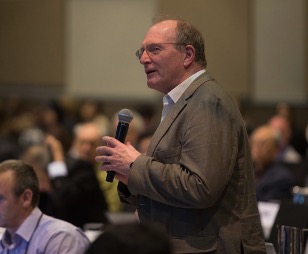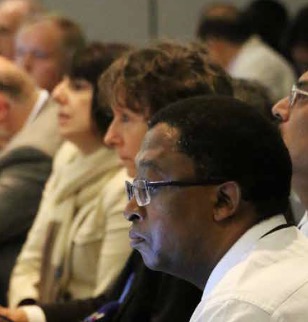In the interest of encouraging and supporting invitations to international unions and other scientific members of the International Science Council (ISC) family to hold congresses, general assemblies and similar meetings, this practical guide has been designed to assist individuals and professional societies begin the process of bidding for these events.

The Australian Academy of Science serves as Australia’s adhering body for the ISC and its affiliated disciplinary unions. The Academy has responsibilities in relation to international meetings; particularly those sponsored by international organisation in which Australian researchers are active participants.
For all types of meetings, the Academy will be involved to some extent. The measure of this involvement will vary depending on the circumstances of each meeting and the responsibilities that will have been agreed upon with respect to the designation of an organising body to handle the necessary fiscal and administrative arrangements, issuance of the invitation, and sponsorship. The Academy’s policy on holding international meetings in Australia provides more information on the role of the Academy in the bidding process.

Below is a list of resources of the incentives for hosting ISC union conferences and congresses in Australia.
Guidelines from the Australian adhering body:
Benefits to hosting ISC events:
Convention bureaus also offer resources for the benefits and incentives of hosting these events:
The website of the Association of Australian Convention Bureaux offers a comprehensive list of conference bureaux that contain content on the benefits of hosting international conferences.

In Australia, the organisation of international meetings requires the assistance and cooperation of a number of domestic institutions, both private and public. These include the Academy, scientific societies, universities, research institutes and industries, as well as governmental bodies at both the federal and state levels.
This is not a short-term project. Realising the benefits of hosting these events will require a team of enthusiastic and driven individuals. The individuals who take charge in bidding for these events need to be capable of coordinating the engagement of government, industry and specialists in the relative field. The state convention bureaus can help to locate such individuals.
Early communication and continuous consultation by the meeting organisers with the Academy and the relevant National Committee for Science is strongly recommended – preferably twelve months before the meeting at which it is intended to submit the invitation and well before any signals are sent to the ISC body as to the likelihood of an invitation from Australia – so that initiators have a clear understanding of the Academy’s policy and responsibilities that will fall to them. The formal approach to the Academy should be not less than six months before the meeting, so that the Council of the Academy can give full consideration.
ISC unions and member bodies hold conferences, congresses, and other events in a cyclical manner. Notification of applications to host are released to the community, generally through officer-bearers and individual union members, and to the Academy and other relevant organisations.
Prior to beginning the process of submitting a bid it is important to assess your applicability to the call. A call for applications will contain selection criteria for the bid.
General criteria to meet for beginning the process of submitting a bid:
© 2025 Australian Academy of Science